Module: Business in Oceania
Module (Master, Doctorate) “Foreign Trade and Business in Oceania” (e-learning,
11 ECTS,  )
)
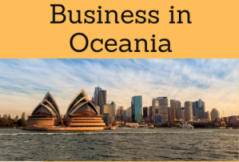
Eight subjects compose the Module “Foreign Trade and Business in Oceania” (Australia, Papua New Guinea, New Zealand...) taught by EENI Global Business School:
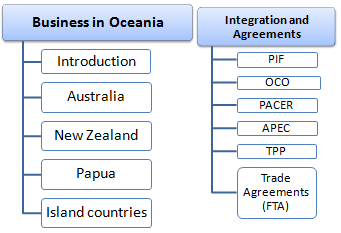
- Economic Area of Oceania
- Business in Australia
- Business in New Zealand
- Business in Papua New Guinea
- Economic Profile of the Pacific Islands: Cook Islands, Federated States of Micronesia, Fiji, Kiribati, Nauru, Niue, Palau, Marshall Islands, Samoa, Solomon Islands, Tonga, Tuvalu, and Vanuatu
- Economic Integration in Oceania
- Trade Agreements related to Oceania
- Other Economic Institutions related to Oceania

- Credits: 11

- Duration: three months It is recommended to dedicate about twelve hours of study per week following a flexible schedule. It is possible to reduce the duration dedicating more hours a week
- Download the syllabus (PDF)
Languages: 
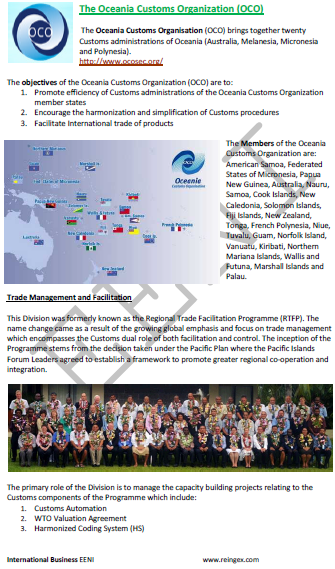
The main objective of the Module is to offer a global vision of the economy of Oceania and the business opportunities in the region in order to:
- Understand the importance of the Pacific Islands Forum (PIF), APEC, and the Oceania Customs Organization (OCO)
- Learn to do business in Australia, New Zealand, and Papua New Guinea
- Know the business opportunities in Oceania
- Explore the Free Trade Agreements related to Oceania
- Analyze the foreign trade and foreign direct investment
- Develop a business plan for Oceania
Module intended for all those wanting to specialize in the markets of Oceania (Australia, New Zealand, Papua).
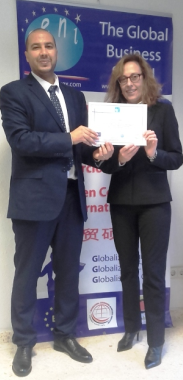
This Module belongs to the following Higher Education Programs taught by EENI:
Masters: International Business, Foreign Trade.
Doctorate and Masters in International Business for the  Papua New Guinean students,
Papua New Guinean students,
 New Zealander Students and
New Zealander Students and
 Australian Students.
Australian Students.
Global Trade and Business in Oceania
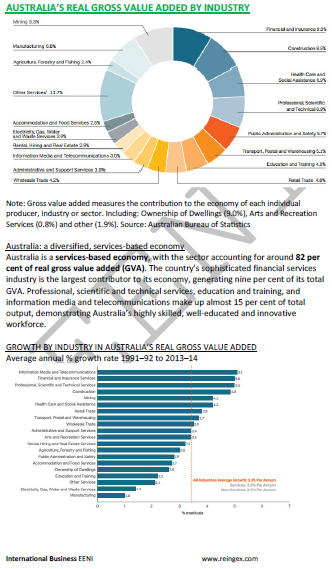
1- Introduction to the Economic Area of Oceania (PDF).

4- Business in Papua New Guinea.
5- Economic Profile of the islands (countries and states) of Oceania.
- Cook Islands
- Federated States of Micronesia
- Fiji
- Kiribati
- Nauru
- Niue
- Palau
- Republic of the Marshall Islands
- Samoa
- Solomon Islands
- Tonga
- Tuvalu
- Vanuatu
6- Economic Integration in Oceania.
- Pacific Islands Forum
- Pacific Island Countries Free Trade Agreement (PICTA): Solomon Islands, Cook Islands, Fiji, Kiribati, Nauru, Vanuatu, Niue, Micronesia, Papua New Guinea, Tonga, Tuvalu, Samoa
- Oceania Customs Organization
- Australia-New Zealand Closer Economic Relations Agreement
- APEC
- Agreement for Trans-Pacific Partnership
- Pacific Agreement on Closer Economic Relations Plus (PACER Plus): Australia, Cook Islands, Kiribati, Nauru, New Zealand, Niue, Samoa, Solomon Islands, Tonga, Tuvalu, Vanuatu
- Melanesian Spearhead Group (MSG) Trade Agreement: Solomon Islands, Fiji, Vanuatu, Papua New Guinea
- South Pacific Regional Trade and Economic Cooperation Agreement (SPARTECA): Australia, Solomon Islands, Cook Islands, Fiji, Kiribati, Nauru, Vanuatu, New Zealand, Niue, Micronesia, Marshall Islands, Papua New Guinea, Tonga, Tuvalu, Samoa
- Australia-Papua New Guinea Free Trade Agreement (PATCRA)

7- Free Trade Agreements (FTAs) related to Oceania.
- ASEAN-Australia-New Zealand Agreement
- Australian Free Trade Agreements
- New Zealander Free Trade Agreements
- UK-Pacific States Free Trade Agreement (Solomon Islands, Papua New Guinea, Samoa)
8- Business Plan for Oceania (export, import, implementation).
The Module includes the Market Access Tool:
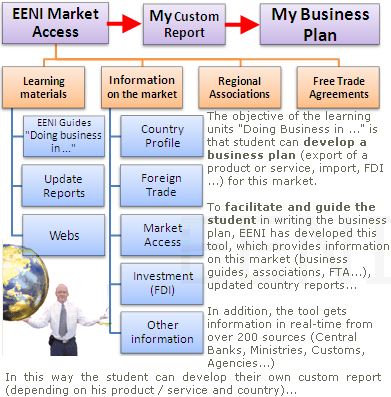
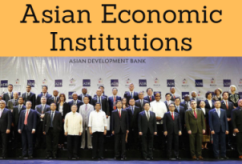
Other Economic Organizations related to the countries analyzed on the Module Business in Oceania
- ESCAP
- Council of Pacific Economic Cooperation (PEEC)
- East Asia-Latin America Cooperation
- Asia-Europe Meeting
- Colombo Plan
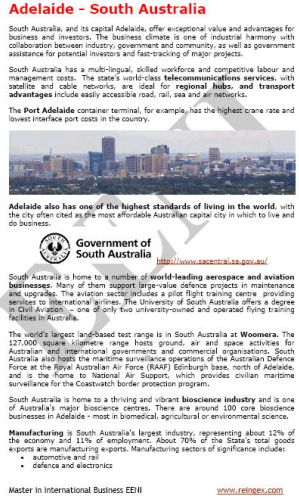
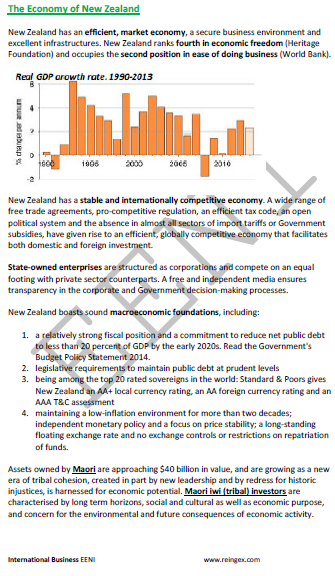
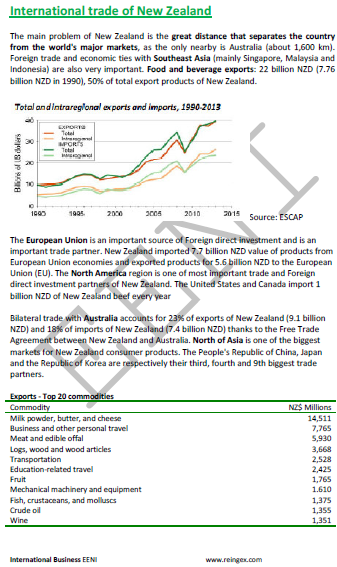
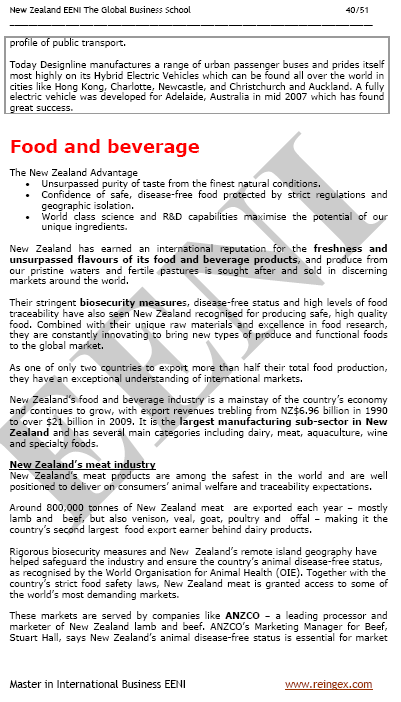
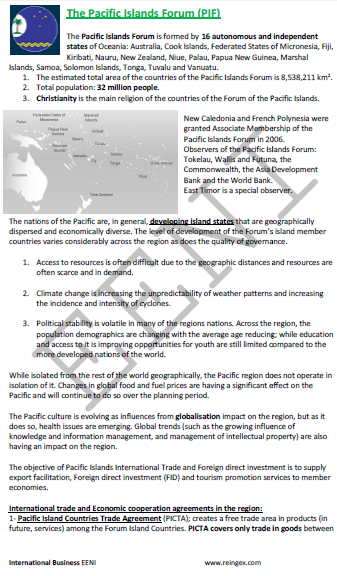
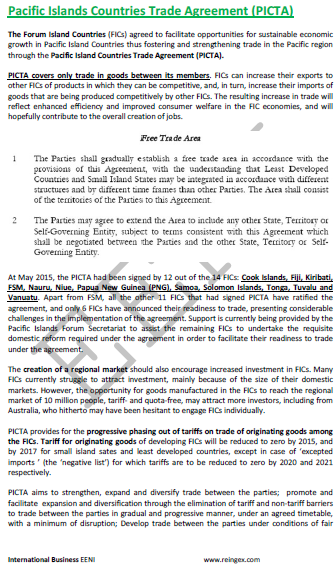
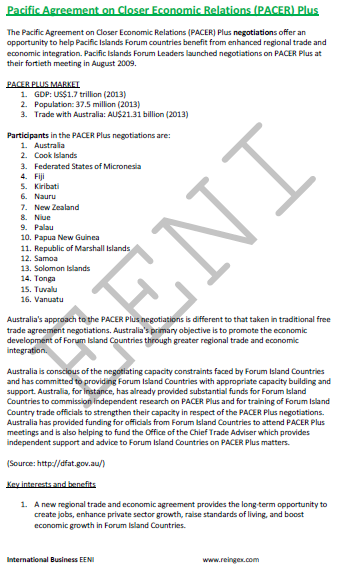
(c) EENI Global Business School (1995-2024)
We do not use cookies
Top of this page





